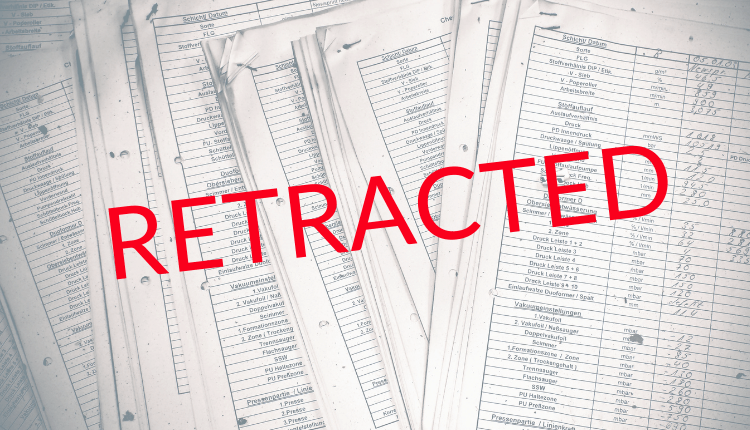Journal Retracts a Record-Setting 434 Research Papers

Scientific misconduct continues to plague the academic world. When scientific misconduct comes to light, it often results in retractions of published papers. An effort to crack down on such misconduct has resulted in an increasing number of high-profile retractions. However, none have been so massive as the recent retractions from the Journal of Fundamental and Applied Sciences (JFAS). The journal retracted 434 research papers. What happened, and what does it mean for science?
The Case of the JFAS Retractions
The Journal of Fundamental and Applied Sciences (JFAS) is an international peer-reviewed scholarly open access journal. The faculty of sciences and technology of the University of El Oued published this journal. Other journals have issued large-scale retractions in the past. For example, Tumor Biology retracted 107 research papers after a fake peer review scandal, while the Proceedings of the National Academy of Sciences retracted 106 such papers. However, the JFAS’s sudden retraction of 434 research papers in one go set a record for the largest number of papers retracted at one time. Was this a case of extreme scientific misconduct suddenly coming to light? Or are other factors at play?
Retraction Watch reported that the retraction of the articles followed after the delisting of JFAS from the Web of Science index in June of 2018. After the journal was delisted, scientists from the Universal Society for Applied Research (USAR) asked to retract their papers. Instead, they wanted to publish them in Web of Science-indexed journals. Clarivate Analytics explained that the delisting resulted due to the JFAS “no longer meeting the quality criteria”. According to them, “a large volume of content published in supplemental issues” did not fall under the stated scope of the journal.”
Delisting and Retractions
The request from the scientists to have their articles retracted following the delisting comes as no surprise. This is with respect to the importance of publishing in reputable journals to scientists’ careers. As noted by Retraction Watch, many institutions strongly prefer or even mandate consideration of only Web of Science-indexed work when it comes to tenure, promotions, and other incentives. When the journal Oncotarget was delisted in 2018, the authors expressed great dismay and disappointment over what would become of their hard work. The journal loses the impact factor, followed by the lack of satisfactory explanation for the delisting.
It seems the scientific community is still struggling with the best way to handle situations such as these. Certainly publication in a “disreputable” journal can harm a researcher’s reputation. But does this justify massive retractions such as the one conducted by JFAS? Research shows that the majority of retractions result from scientific misconduct and not from a lack of reproducibility. Hence, mass retractions such as this one can seem alarming at first glance. With high-profile fabrication and misconduct cases such as Brian Wansink’s data manipulation and Sam Lee’s violation of ethical guidelines gaining public attention, retractions can threaten public trust in science.
Are Increasing Retractions Cause for Alarm?
One could argue that growing retractions are a sign the scientific community is increasing its efforts to police itself and promote quality science. The recent launch of the retraction database is one such example of this. A study by Science found that the increase in retractions is on par with the increase in the number of journals and articles published. Possibly, this recent retraction will give authors the chance to have their work reviewed and published elsewhere.
What do you think of the JFAS retractions? Should delisted journals be allowed to retract the work of published authors? Let us know your thoughts in the comments below.









